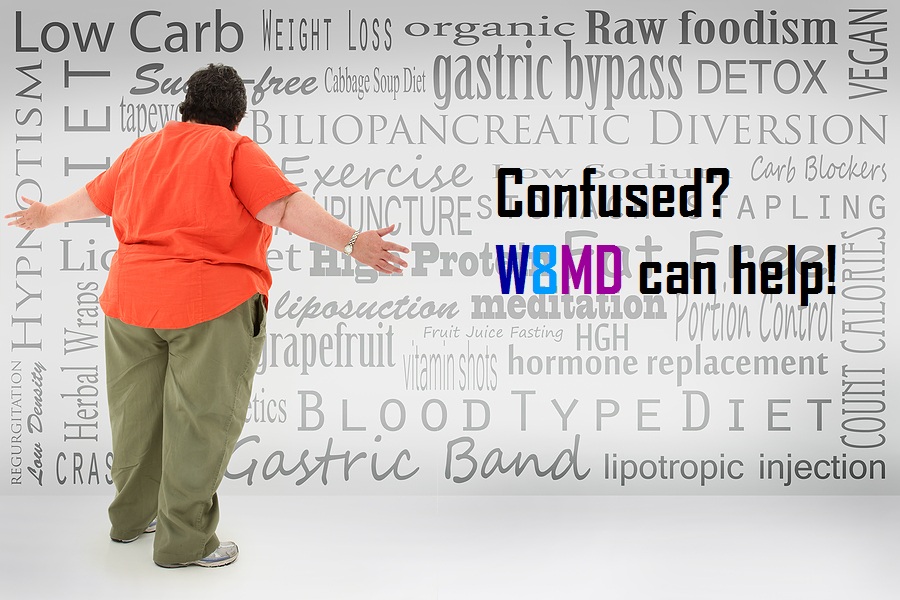A Practical Guide for Lasting Results

If you’re searching for the best weight loss diet in Philadelphia or South Jersey, you’ve probably seen dozens of plans, hacks, and “quick fixes.” The truth is simpler: the most effective diet is one you can follow consistently—built on calorie control, adequate protein, high-fiber whole foods, and sustainable habits. Below is a clear, evidence-informed guide, plus how W8MD’s Philadelphia medical weight loss program can personalize a plan that works for you.
Key Principles of an Effective Weight Loss Diet in Philadelphia
1) Create a Calorie Deficit (Without Misery)
To lose weight, you must burn more calories than you consume. You can achieve this by:
- Eating slightly fewer calories (portion awareness, meal structure).
- Increasing physical activity (walking, strength training, daily movement).
- Combining both for steady, realistic progress.
Tip: Aim for a moderate deficit you can sustain—extreme cuts backfire.
2) Prioritize Protein at Every Meal
Protein helps you feel full, protects lean mass, and supports recovery. Include a source at each meal:
- Chicken, turkey, fish, eggs
- Greek yogurt, cottage cheese
- Tofu, tempeh, legumes (beans, lentils)
3) Choose Whole, Minimally Processed Foods
Limit ultra-processed and high-fat snack foods; they’re calorie dense and easy to overeat. Build your plate around:
- Fruits and vegetables
- Whole grains (oats, brown rice, quinoa)
- Lean proteins and healthy fats (olive oil, nuts, seeds)
4) Load Up on Fiber
High-fiber foods help you feel full and stabilize appetite:
- Vegetables, fruits, legumes
- Whole grains and seeds
5) Hydrate (It Really Helps)
Dehydration can mimic hunger. Target ~8 glasses of water per day (more if active or in hot weather). Unsweetened tea or black coffee can also fit.
6) Skip Sugary Drinks
Sodas, sweetened coffees, and some fruit juices pack lots of calories with little satiety. Choose:
- Water
- Sparkling water
- Unsweetened tea or coffee
7) Track What Matters
Journaling or using a food tracking app can reveal hidden calories, portion creep, and unhelpful patterns. Tracking builds awareness and helps you adjust faster.
8) Be Patient and Consistent
Weight loss is a journey, not a one-week event. Expect plateaus, adjust gently, and focus on habits you can keep.
Personalization Beats One-Size-Fits-All
Everyone’s starting point and lifestyle are different. A plan that considers your schedule, preferences, medical history, and metabolic factors (like insulin resistance) will outperform generic rules. That’s where a structured, physician-guided approach can make the difference.
How W8MD’s Philadelphia Medical Weight Loss Program Can Help
At W8MD in Northeast Philadelphia, our physician-supervised program designs a plan around you:
- Medical evaluation & personalized plan: We assess your history, medications, sleep, stress, and nutrition to build a realistic strategy you can follow.
- Protein-forward, high-fiber meal structure: Practical templates, grocery lists, and dining-out strategies that fit busy lives.
- Low-glycemic & keto-friendly options: Pre-portioned and meal-replacement choices, plus online keto recipes when appropriate.
- Accountability & coaching: Follow-ups to adjust calories, macros, and meal timing; problem-solving through plateaus.
- FDA-approved options (when appropriate): Discussion of medications such as semaglutide (Wegovy/Ozempic), tirzepatide (Zepbound/Mounjaro), and others—always personalized, never one-size-fits-all.
- Sleep & wellness integration: Screening and support for sleep issues that can undermine weight control.
Our goal is simple: a sustainable plan that helps you reach—and maintain—your goal weight safely and confidently.
SEO FAQs: Best Weight Loss Diet in Philadelphia
What is the best weight loss diet?
The best diet is balanced, protein-adequate, high in fiber, and calorie-controlled—and tailored to your preferences and schedule.
Do keto or low-carb plans work?
They can, especially for those who prefer them or benefit metabolically. W8MD offers keto-friendly and low-glycemic structures—but personalization is key.
How much protein should I aim for?
Many adults do well with 20–40 g protein per meal, adjusted for body size and activity. We’ll personalize your target.
Do I need to count calories?
Not always. Structure (protein at each meal, high-fiber foods, portion cues) often controls calories naturally. Tracking is a tool, not a rule.
Also See
References
- American Heart Association (2021). “Healthy Eating.” https://www.heart.org/en/healthy-living/healthy-eating
- Academy of Nutrition and Dietetics (2021). “Weight Loss.” https://www.eatright.org/weight-loss
- Harvard T.H. Chan School of Public Health (2021). “The Nutrition Source: Healthy Weight.” https://www.hsph.harvard.edu/nutritionsource/healthy-weight/
Contact & Locations (W8MD Philadelphia Medical Weight Loss)
Pennsylvania weight loss – North East Philadelphia (Primary)
W8MD Medical Weight Loss
1718 Welsh Road, 2nd Floor, Ste C
Philadelphia, PA 19115
(215) 676-2334
New York City weight loss
2632 East 21st Street, Ste L3
Brooklyn, NY 11235
(718) 946-5500
(Keywords: best weight loss diet Philadelphia, Lose weight Philadelphia, South Jersey weight loss, low-glycemic diet Philadelphia, keto Philadelphia, physician weight loss Philadelphia, calorie deficit, high protein diet, fiber for weight loss, GLP1 weight loss injections Philadelphia)
